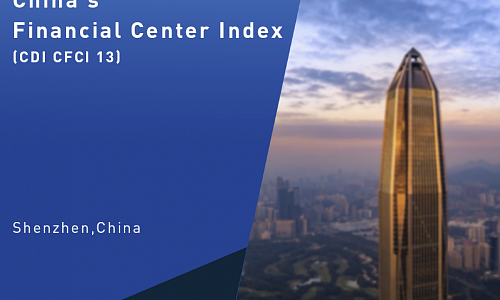Wu Zimeng

Research Associate
Research Focus
Guangdong-Hong Kong-Macao Greater Bay Area, Rural Development, and Industrial Planning
Education
Bachelor of Science, Central China Normal University
Projects
2023 Seaward Economy Guide for the Guangdong-Hong Kong-Macao Greater Bay Area, 2023
Compilation of Industrial Planning for Marine High-Tech Zone in Xiamen, 2023
Study on the Development of Port Economy in Nansha District Guangzhou, 2023
Industrial Planning of Circular Industrial Park in Nanpiao District Huludao, 2023
Study on Creating a Modern Marine Fishery Benchmark City in Zhuhai, 2023
Study on the Creation of a High-Quality Development Demonstration Zone (Under Preparation) in Hezhou Zhuhai, 2023
Study on Marine Economic Planning and Statistics for Qianhai Shenzhen, 2023
Contact
Email: wzm@cdi.org.cn
Wang Shenchen

Research Associate
Previously Postdoctoral Fellow in Economics at CDI
Research Focus
Industrial Economy, Digital Economy, Big Data, and Fintech
Education
Doctor of Business Administration, City University of Macau
Contact
Email: wilsonwang@cdi.org.cn
tel:+86-755-8247 1437
Wang Jing

Research Associate
Research Focus
Industrial Planning, Business Strategy, and New Economy
Education
Juris Master, Sun Yat-sen University
Bachelor of Arts in English language and literature, Wuhan University
Projects
Study on the Development Strategy of the Hong Kong-Zhuhai-Macao Bridge Economic Zone, 2023
Mid-term Evaluation of Fixed Asset Investment During the "14th Five-Year Plan" of Luohu District Shenzhen, 2023
Comparative Study on Key Industry Policies for Zengcheng District Guangzhou, 2023
Contact
Email: wangjing@cdi.org.cn
tel:+86-755-82470451
Shi Yonghan

Research Associate
Research Focus
Special Economic Zone, Public Governance, Investment and Business Strategy
Education
Master of Arts in Analytical Political Economy, Duke University
Bachelor of Laws in Philosophy, Politics and Economics (PPE), Renmin University of China
Visiting Student, Hertford College, University of Oxford
Projects
Master Plan of Special Economic Zone in Sihanoukville Province Cambodia, 2023
Border Economic Cooperation Zone and Cross-border Economic Cooperation Zone Development Report (2023), 2023
Comprehensive Study on the Application for Establishment of the China (Xinjiang) Pilot Free Trade Zone, 2023
Study on the Interest Balance Mechanism of Shenzhen's "Enclaved" Industrial Parks, 2023
Comprehensive Consulting Services Project for the 12th Division of Xinjiang Production and Construction Corps, 2023
Study on the Classification, Grading, and Funding Mechanism for the Renovation of Urban Old Residential Quarters in Shenzhen, 2023
Contact
Email: shiyh@cdi.org.cn
tel:+86-755-8247 0576
Shen Xiaolu

Research Associate
Research Focus
Digital Economy, Foreign Investment, Regional Economics, and Industrial Planning
Education
Master of Analytics, Northeastern University
Bachelor of Mathematics and Applied Mathematics, Central South University
Projects
Mid-term Evaluation of the Implementation of the "14th Five-Year Plan" for Utilizing Foreign Investment, 2023
Study on the Digital Transformation of Central Enterprises and the Construction of a Digital Manufacturing System, 2023
Annual Report on Ecological Protection of Qinling Mountains (2023), 2023
Mid-term Evaluation of "14th Five-Year" Plan of Licheng District Quanzhou, Fujian, 2023
Study on Improving Dongguan's Computational and Algorithm Capacity and Empowering Hardware with Software, 2022
Long-term Strategic Consultation for Digital Creative Industry Cluster in Futian District Shenzhen, 2022
Contact
Email: XShen@cdi.org.cn
tel:+86- 0755-25122427
Li Enhan

Research Fellow, Deputy Director of Token Digital Economy Research Center
Previously Postdoctoral Fellow in Economics at CDI
Research Focus
Macroeconomics, Opening-Up Policy, Innovation-Driven Growth, Digital Economy, Data Governance, Platform Governance
Education
Ph.D. in Commercial Law, Autonomous University of Barcelona
Ph.D. in Antitrust Law, China University of Political Science and Law
Master of Civil Law, China University of Political Science and Law
Bachelor of Law, China University of Political Science and Law
Projects
Study on Establishing a National Experimental Zone for Technology & Finance Innovation in Shenzhen, 2022
Report on Blockchain Empowering the Integrated Development of Guangdong-Hong Kong-Macao Greater Bay Area, 2022
Key Research Report on Further Deepening Shenzhen-Hong Kong Cooperation and Promoting Efficient and Convenient Flow of Shenzhen-Hong Kong Market Resources, 2022
Giving Full Play to the Government's Role in Accelerating the Development of Market-Oriented Parent Fund Industry, 2021
Study on Promoting the Development of Digital Economy and Digital Financial Tax, 2021
Study on Regulatory Innovation and Standardization of Platform Economy, 2021
14th Five-Year Plan of Foshan, 2020
Study on Further Optimizing the Policy System of Special Funds for the Development of Industries Characterized by Independent Innovation in Nanshan District Shenzhen, 2020
Contact
Email: phd_leh@cdi.org.cn
tel:+86-755-82470584
Li Daifeng (Dave)

Research Assistant
Research Focus
Macroeconomics, Regional Economics, Urbanization, Blue Economy and Industrial Planning
Education
Master of Construction Management, Deakin University
Projects
Long-Term Vision for Marine Development by 2035 in Qingdao, 2023
Shenzhen's Marine Industry Investment Strategies and Implementation, 2023
Study on Marine Economic Development Strategy in Shenzhen-Shantou Special Cooperation Zone, 2023
Study on Overall Development Plan in Dapeng Peninsula Shenzhen, 2023
Study on Development Positioning and Industrial Optimization in Baguang Area Shenzhen, 2023
Promoting the Ecological Construction of Green and Beautiful Dongguan - Exploring the Development Path of "Water Economy" in Cities, Towns, and Villages, 2023
Research on Establishing a Blue Partnership and Engaging In-depth in Global Ocean Governance, 2022
Construction Scheme of Modern Marine City in Guangdong Province, 2022
Report on the Development of Shenzhen Marine Industry in 2022, 2022
Planning on Cooperation Between Shenzhen and Domestic Characteristic Marine Cities, 2022
Study on the Construction of Shenzhen Marine Industrial Park and the International Benchmarking Strategy of Marine Finance, 2022
Study on Promoting High-quality Development of Marine Economy in Shenzhen-Shanwei Special Cooperation Zone, 2022
Contact
Email: lidaif@cdi.org.cn
tel:+86-180-0294-0757
Jia Qingli

Research Assistant
Research Focus
Regional Economics, Urban Development, and Industrial Park
Education
Master of Science in Managerial Economics, Nanyang Technological University
Projects
Construction Implementation Scheme and Comprehensive Development Plan for Kashgar Area in China (Xinjiang) Pilot Free Trade Zone, 2023
Comprehensive Development Planning of Luoyang High-tech Zone in Henan Province, 2023
Construction Implementation Plan for China (Xinjiang) Pilot Free Trade Zone, 2023
Regulatory Detailed Planning of Border Economic Cooperation Zone in Fangcheng District Guangxi, 2023
Comprehensive Consulting Services Project for the 12th Division of Xinjiang Production and Construction Corps, 2023
Study on Medium and Long-term Economic Development Strategy in Urumqi Xinjiang, 2023
Development Planning of Wisdom Island of Yibin District Luoyang Henan, 2022
Comprehensive Consulting Services for High-level Strategic Positioning, High-level Planning and High-standard Construction in Cuiheng New District of Zhongshan Guangdong, 2022
Study on the Comprehensive Planning of Free Trade Zone in Cambodia, 2021
Compilation of Detailed Regulatory Planning for Jilong Border Economic Cooperation Zone in Tibet, 2021
Contact
Email: jql@cdi.org.cn
Chen Ziye

Research Assistant
Research Focus
Regional Economics, Industrial Planning, Urban Planning, and Industrial Park
Education
Master of Economics, Hunan University
Projects
Mid-term Evaluation of "14th Five-Year" Plan Outline of Longgang District Shenzhen, 2023
Construction Plan of Culture & Tourism Industry Science and Technology Innovation Center in Heilongjiang, 2023
Study on Snow Town Innovation and Improvement Development Path in Heilongjiang, 2023
Study on Modern Fashion and Precision Instrument Equipment Industry Clusters in Guangming District Shenzhen, 2023
Study on Industrial Planning and Investment Promotion of Shanpo Subdistrict in Jiangxia District Wuhan, 2022
Study on Industrial Planning of High-quality Industrial Space Pilot Project for Baolong Subdistrict Longgang District Shenzhen, 2022
Contact
Email: chenzy@cdi.org.cn
Tel:+86-755-82470033
Unchartered Water: AI and Its Implications for Copyright Law

Author: Dr. LI Enhan, Deputy Director of Token Digital Economy Research Center, CDI
Editor’s note: In the wave of global digitalization and intelligence, AI's role in artistic creation is challenging the foundations of copyright law. Questions about the originality of AI works, their copyright ownership, and the criteria for infringement are now at the forefront for legal experts. Against this backdrop, China and the United States, as major global players, are navigating the uncharted waters of AI and copyright with their distinct legal practices likely to shape international norms.
The growth of artificial intelligence (AI) requires a redefinition of traditional copyright concepts, including authorship, originality, and the attribution of rights and liabilities associated with infringement. While AI creations increase in complexity, the consensus finds that AI should not be granted authorship, as copyright is intended for human creations. However, with technological advancements and increasingly diversified creative forms, this position may encounter greater challenges and debates.
In the U.S., copyright law insists on a conservative approach and stipulates that human authorship is essential for copyright eligibility. This was evident in the case of "A Recent Entrance to Paradise," in which the court clearly stated that the prerequisite for copyright protection is "human authorship," thereby denying copyright registration for AI-generated pieces (Mathur, 2023). The U.S. demands significant human creativity in a work to deem it copyrightable, thus often excluding AI-generated works from copyright protections.
China, in contrast, demonstrates greater flexibility. When assessing AI-generated works, Chinese courts consider both the originality and the degree of human involvement and tend to judge whether works reflect human intellectual input and individuality. In the "Dreamwriter" case, the People's Court of Nanshan District in Shenzhen handed down a judgment in favor of the plaintiff Tencent. It recognized its AI-generated article on stock analysis as eligible for copyright since the article’s structure aligned with the format of the opinion piece and consisted of specific creative choices (Xiao, 2020).
These contrasting standards could lead to diverse future effects. The stringent option might limit the number of AI works eligible for copyright protection, affecting the innovation incentives of AI-related enterprises and individuals. In contrast, an open recognition approach could encourage AI creativity and foster synergy between AI technology and cultural industries. Yet, the latter may also encounter greater AI copyright dispute resolution challenges, necessitating a more nuanced framework for AI copyright recognition.
Furthermore, the conservative leaning of the U.S. may bolster traditional human creative processes and underscore humans' central role in art and culture. Meanwhile, China's flexible recognition could stimulate new forms of artistic and cultural expression. As AI creations may soon become integral to Chinese culture and art, China must prepare its cultural and art industries for the digital impact, addressing concerns such as the diminishing motivation among traditional artists and competitive pressures from AI-generated content in the market.
AI technology is now pushing copyright law into a new era. The contrasting perspectives and practices of China and the United States related to AI copyright reflect different interpretations of human creativity and hint at the future of global copyright law. The challenge for future lawmakers and practitioners will be in reconciling the enduring principles of copyright with the pace of technological innovation.
Reference:
Mathur, A. (2023, Dec 11). Case Review: Thaler v. Perlmutter (2023). Retrieved from Center for Art Law: https://itsartlaw.org/2023/12/11/case-summary-and-review-thaler-v-perlmutter/#post-61801-footnote-ref-0
Xiao, B. (2020, Mar 19). Shenzhen concludes first AI-generated article dispute case [深圳审结首例人工智能生成文章作品纠纷案]. Retrieved from People's Court Daily: http://oldrmfyb.183read.cc/paper/html/2020-03/19/content_166241.htm








